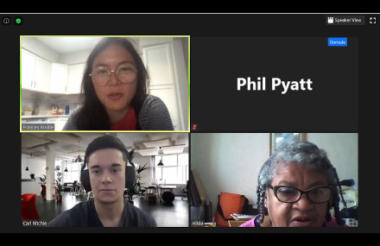The recently published State of the Sector report by charity sector think tank NPC looked at how charities have reacted to Covid-19. It resonated strongly with the team at TimeBank - in particular, its point about the impact on face-to-face delivery as more services move online. In short, it suggests that a move to online delivery means that in a post-pandemic world funders and commissioners could seek to continue this as a cheaper option.
TimeBank has been agile in the face of the pandemic and quickly embraced new ways for people to volunteer, including online mentoring and working with companies to engage their staff in Zoom sessions to help isolated older people use technology to reach out to friends and family.
But even with our success online, we know we stand to lose something valuable if that were the only option for service delivery. For many of our partners and beneficiaries either delivering or accessing online services is simply not an option.
In our online project supporting ex-service men and women we knew we had to take care not to reinforce the self-isolation of beneficiaries by only offering support online. This was always a means to an end – that we would support those who were socially isolated to access mainstream services and leave their homes to interact with others. And as we found with support from the Catalyst programme there are many people who do not access online services because of a personal, cultural and systemic challenges.
Working on the ground to build relationships
But the challenges go far deeper than just those at the point of service delivery. For TimeBank and many other charities which engage with grassroots community organisations, we have spent many years building mutually beneficial relationships in advance of any new project. This has required us to work with organisations to build their capacity so they can identify appropriate roles for volunteers and have the policies and procedures in place to support them to deliver projects. It takes time and trust to help organisations develop policies and approaches that mean volunteers can be effectively involved in their work.
For our team that meant working on the ground, knocking at the doors of community centres and places of worship to build relationships with organisations that are simply not on the digital radar. In our Talking Together programme, where we delivered community based English language lessons to marginalised residents, we developed close relationships with over 100 community organisations, many of which had never involved volunteers before. This could not have happened online.
In the rush to deliver services online, we hope the value of user-engagement, grassroots community development work and capacity building is not lost. Volunteering cannot happen in a vacuum. Organisations like TimeBank and others take time and financial resources to develop meaningful volunteering opportunities that work.
Yes, online volunteering has its place and we’ve learnt a lot about how to deliver it most effectively. But we hope that the funders and commissioners we approach will recognise that in future a blended approach to engaging with communities and beneficiaries works best.
Andy Forster is programme director at volunteering charity TimeBank
Related articles












